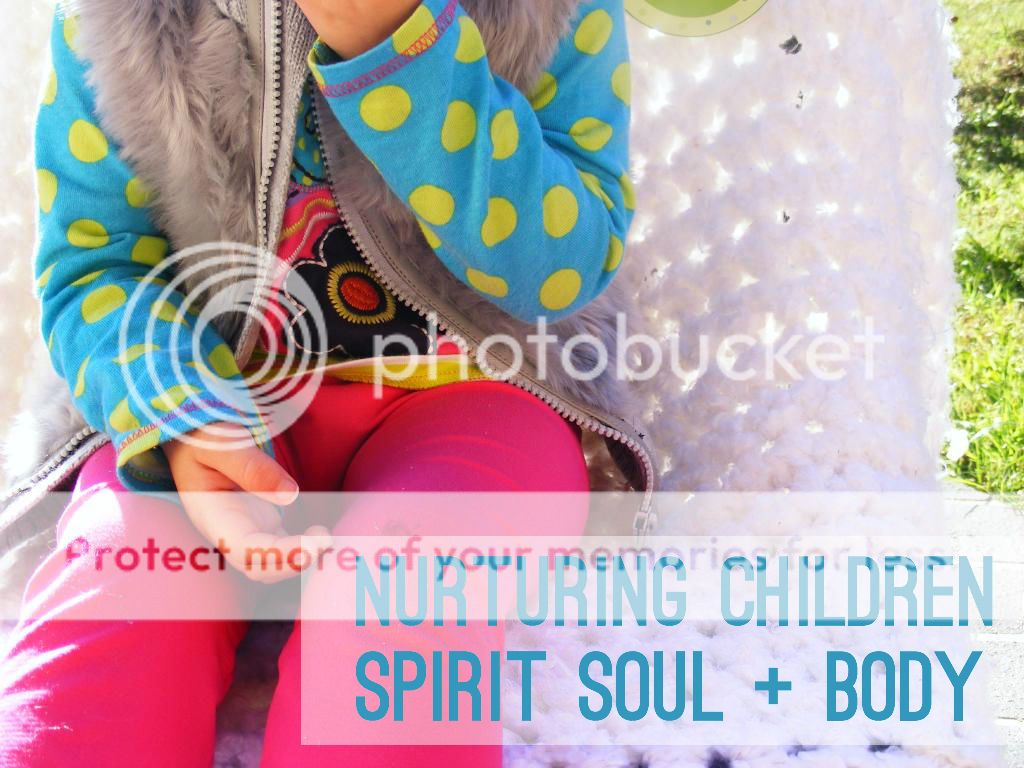As God is in three parts, He created us in three parts: spirit, soul and body (1 Thess. 5:23). Though separate and distinct they are inter-twined and what happens to one heavily affects the others. No doctor will deny that emotional stress can cause physical illness. Anyone with chronic pain will tell you their soul and spirit become heavy.
As parents we aren’t called simply to feed our children in their body, but also their spirit and their soul. Loosely defined, the body is flesh and blood. The soul is our personality, emotions and mind. The spirit is the core of who we are, the eternal part of us.
So then, how can we nurture our children more wholly?
(1) Affirm who God has made them to be.
I’ve heard it said each child comes with a different owner’s manual. You may have 3 who all respond drastically different to the same gift, instruction or disciplinary measure. God made them differently and it’s in those differences that they will find their strengths, gifts and talents. In the book Grace based Parenting, which I have yet to finish) the author points out that one way we parents can help to let our children thrive, is that in non-moral matters, we should let them be individuals. They want to wear black polka dots with brown plaid and orange shoes because they think it matches? Fine. They want to re-enact the civil war instead of watching Disney movies? Okay. Don’t try to make your children fit a mold in simple matters of personality. There will be plenty of opportunities to train them to conform to your morals and values, but their personalities need not conform to ours.
(2) Help train them to keep short accounts with God and others.
Heavy weights of disappointment, heartache, and loss can crush the soul and spirit. Unrepented of sin can cause dullness in spirit that prevents us from hearing from or responding to God properly. Training our children to deal with sin or bad decisions swiftly will help set them back on the right track. Helping teach our children the command of forgiveness, and how it is actually to our own benefit to forgive, will make a difficult practice much easier. Letting your children cry on your shoulder or rant in anger (not directed at you, but perhaps with you as a witness which will give them an outlet to release their emotions) helps them understand that it’s good to deal with things as they come instead of piling up years and episodes of pain and disappointment.
(3) Dig deep to uncover the root of their fears, anxieties, dreams and hopes for the future.
One way we can teach our children to live deeply instead of simply superficially is to really get to know them. Because my husband and I met doing a counselling course we’ve never had superficial communication. Whereas many people often say that most conflicts occur because of misunderstandings or small things, I can truly say that we generally could care less about small things. When we fight, we have it out for real. We almost always, and almost immediately, go past the surface and ask “What is really going on? Are you feeling insecure about something? Are you hurt? Is this reminding you of something else that bothers you?”
If we do the same with our children then we’ll help unearth the things below the surface. Your daughter reacts very strongly to a perceived rejection. Instead of saying “forget about it, she probably didn’t mean it” you should dig deeper. What are you really feeling? Why does this hurt you? What is the worst that could happen in this situation? etc. By connecting with your children on a deep level you’ll be able to identify what causes their fears and worries and how you can help. Also, knowing them as people instead of simply as your kids will help you see their dreams and hopes and spirits and souls as living breathing and God-given, and this will help you to nurture them more fully.
Back in college, a friend’s dad once said that he thought we got sadder as we aged because we’d had more years to live on earth being hurt and disappointed. At the time – and even more so now – I thought this was such a sad way to look at life. Instead of aging and counting blessings, he thought aging meant counting hurts. Obviously the more years on earth the more knicks and scrapes, but learning to live being mindful of our bodies, souls and spirits will help us to release those heavy, burdened and weary parts to God which will allow us to breathe. And to age gracefully – and perhaps even – to do it lightly. And I hope I can model this in a way that my children go higher and further than I ever could dream to.
Our children are as complex as we are. They are unique and, as God told Jeremiah (Jer. 1:5), before they were conceived He knew them and for what purpose He created them. It is our extreme privilege as parents to walk in front of, alongside, and eventually at a distance from our children as they discover who they are and how God made them in a complete way.
Read articles relating to the spiritual journey with children here



























Leave a Comment